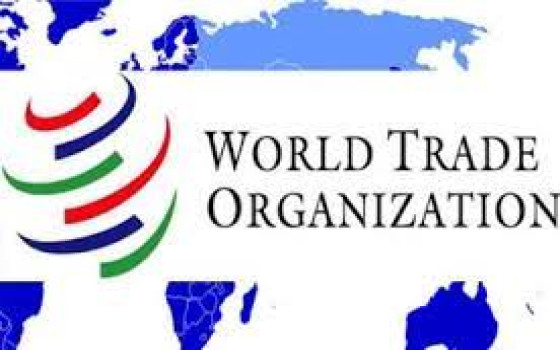
Officially, the European Union is suing China in the World Trade Organization, due to trade restrictions on Lithuania and the rejection of high-tech patents.

- Europe and Arabs
- Wednesday , 7 December 2022 13:54 PM GMT
Brussels: Europe and the Arabs
On Wednesday, the European Union formally requested the creation of two committees at the World Trade Organization for two of its ongoing trade disputes with China. One relates to the legality of trade restrictions imposed by China since December 2021 against Lithuanian exports and EU exports containing Lithuanian content. Another issue relates to the legality of China, which restricts holders of high-tech patents in the European Union from accessing the courts to protect and enforce their rights.
In both cases, the Chinese actions are inflicting great harm on European companies, said a statement from the Commission issued on Wednesday. Moreover, China's discriminatory measures against Lithuania affect intra-EU trade and intra-EU supply chains and affect the functioning of the EU's internal market, including through coercive market adjustments. Removing these measures is in the economic and strategic interest of the European Union.
The WTO's Dispute Settlement Body (DSB) will discuss the EU's request at its next meeting on December 20, 2022. China can oppose the creation of a panel once. If he does, the EU will renew its application and the panel will be established at the January 30, 2023 meeting of the DSB. Commission proceedings can last up to a year and a half.
On January 27, 2022, the European Union requested consultations with China. The consultations were held on March 14-15, 2022. On February 18, 2022, the European Union requested consultations with China. Consultations were held on April 6, 7 and 12, 2022.
China's measures cut trade with Lithuania by 80%
Since December 2021, China has implemented discriminatory and coercive measures against exports from Lithuania and against exports of EU products containing Lithuanian content. These have included refusals by Chinese customs authorities of Lithuanian imports, import restrictions affecting multinational companies using inputs from Lithuania and reductions in Chinese exports to Lithuania. China also suddenly formalized a complete import ban on alcohol, beef, dairy products, logs and peat shipped from Lithuania as part of the same set of measures, using phytosanitary arguments to do so. When asked for further explanations, China failed to prove that this ban was justified. Chinese customs statistics show that trade from Lithuania to China decreased by 80% from January to October 2022 compared to the previous year.
By requesting a commission within the WTO, the EU protects its member states from discriminatory actions by China, which the EU considers a violation of WTO rules.
China's "injunctive injunctions" gag high-tech patent holders
As of August 2020, Chinese courts have issued decisions - known as "injunctive injunctions" - that prevent companies with high-tech patents (known as Standard Essential Patents) from effectively protecting their technologies in non-Chinese courts, including Union courts. European. These “suit injunctions” unnecessarily limit the ability of high-tech patent holders of, say, a European company that owns mobile technology, to go to an EU court to settle a dispute with a potential licensee of, say, a Chinese mobile phone manufacturer under the terms of a patent license. Violation of these injunctions against the claims results in fines of up to €130,000 per day.
European companies have a number of high-tech patents, which give the EU a technological advantage. The Chinese action effectively deprives European high-tech companies of the possibility to exercise and enforce patent rights within the EU or in any other court outside China. In the event that there are questions regarding patent rights in the European Union, the courts of the European Union must decide. For their part, Chinese manufacturers have sought these injunctions against suits to pressure patent rights holders into giving them cheaper access to European technology.
The European Union considers that China's actions are not compatible with the WTO Agreement on Trade-Related Aspects of Intellectual Property Rights (TRIPS). Through these injunctions against litigation, China unilaterally enforces rules in favor of its companies, at the expense of the WTO's multilateral system of intellectual property rights protection. Through the request of the WTO Committee in this case, the EU seeks to ensure that the high-tech industry can effectively exercise patent rights to protect investment in innovation.












No Comments Found